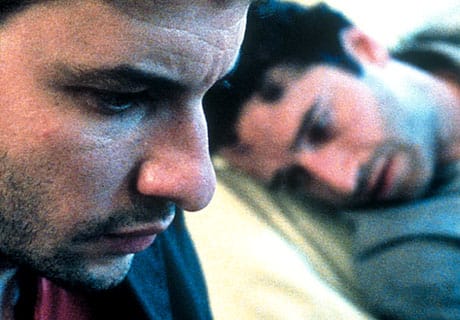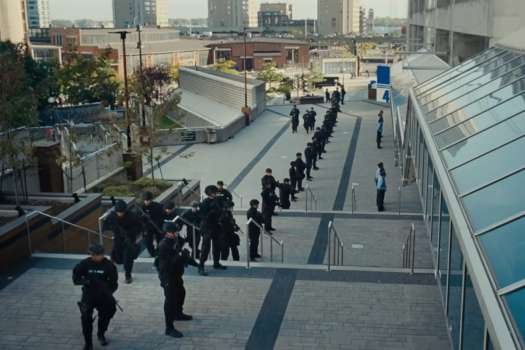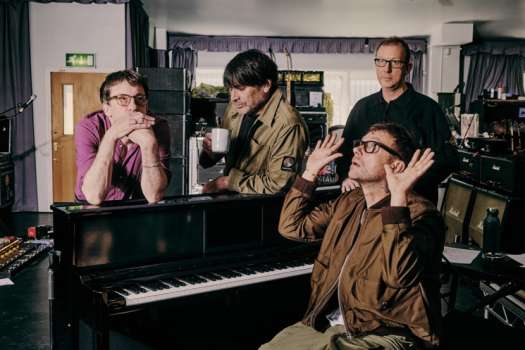Keeping with the French tradition of dragging audiences through as bleak and unflinching a film as the MPAA will allow, Son Frère is a downer. On paper, Chéreau's film reads like a typical hospital drama: two estranged brothers are brought together when one is diagnosed with a phantom blood disease; with his fate in question, they go on to learn about life, love, acceptance and all of that quaint, uplifting pap. However, like any truly inspired film, Son Frère takes this skeletal framework and runs to hell with it.
Adapted from a novel by Philip Besson, the film avoids the fate of most book-to-screen adaptations by succeeding in actually showing the story rather than telling it. There is zero narration and the dialogue is fairly minimal. Connections are made by way of several jumps through time that don't seem purposefully quirky or fashionable. Scattered throughout are clues about the initial fall-out between the brothers, Luc (Erik Caravaca) and bed-ridden Thomas (Bruno Todeschini), but nothing is ever explicitly stated.
A consciously slow and sombre film, Son Frère is an actor's nightmare. The majority of the movie is shot in demanding close-ups, an annoying staple of European filmmaking. Still, the performances are tight and suitably understated. One of the few times the film noticeably stumbles is in the inclusion of an unnecessary dream sequence, wherein Luc and Thomas switch places physiologically.
Son Frère has all the taboos: incest, suicide, homosexuality, infidelity, male nudity, etc. A little something for everyone. French filmmakers have always had a way of revealing the unsettling aspects of human nature in uncompromising and ultimately edifying ways. Son Frère is no exception. (Mongrel Media)
Adapted from a novel by Philip Besson, the film avoids the fate of most book-to-screen adaptations by succeeding in actually showing the story rather than telling it. There is zero narration and the dialogue is fairly minimal. Connections are made by way of several jumps through time that don't seem purposefully quirky or fashionable. Scattered throughout are clues about the initial fall-out between the brothers, Luc (Erik Caravaca) and bed-ridden Thomas (Bruno Todeschini), but nothing is ever explicitly stated.
A consciously slow and sombre film, Son Frère is an actor's nightmare. The majority of the movie is shot in demanding close-ups, an annoying staple of European filmmaking. Still, the performances are tight and suitably understated. One of the few times the film noticeably stumbles is in the inclusion of an unnecessary dream sequence, wherein Luc and Thomas switch places physiologically.
Son Frère has all the taboos: incest, suicide, homosexuality, infidelity, male nudity, etc. A little something for everyone. French filmmakers have always had a way of revealing the unsettling aspects of human nature in uncompromising and ultimately edifying ways. Son Frère is no exception. (Mongrel Media)




